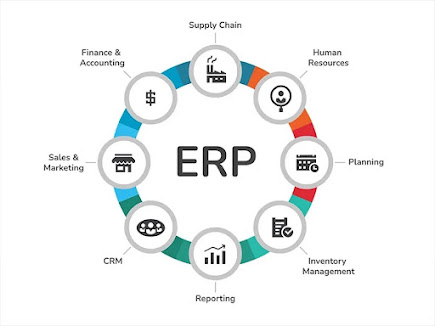ERP Accounting and Finance: Streamlining Business Operations in Kuwait
In today's fast-paced business environment, companies need to streamline their operations to stay ahead of the competition. Enterprise resource planning (ERP) systems are an essential tool for businesses looking to improve their efficiency and productivity. This blog post will focus on the benefits of implementing an ERP system for accounting and finance in Kuwait, as well as answer some frequently asked questions about ERP.
What is ERP?
ERP is a software system that allows companies to manage their business processes, including finance, accounting, human resources, procurement, and supply chain management, from a single platform. An ERP system can provide real-time insights into business operations and help companies make informed decisions. With an ERP system, companies can streamline their operations, reduce costs, and increase efficiency.
What are the benefits of ERP for accounting and finance?
ERP systems provide several benefits for accounting and finance departments, including:
Automating financial processes: ERP systems automate financial processes, such as invoicing, accounts payable, and accounts receivable, reducing the need for manual data entry and increasing accuracy.
Real-time financial insights: ERP systems provide real-time financial insights, allowing finance teams to make informed decisions quickly.
Improved financial reporting: ERP systems can generate detailed financial reports, including balance sheets, income statements, and cash flow statements, improving financial transparency and compliance.
Enhanced data security: ERP systems provide enhanced data security, reducing the risk of fraud and cyberattacks.
Better collaboration: ERP systems allow accounting and finance teams to collaborate more efficiently, reducing the time spent on manual tasks and increasing productivity.
What are the common challenges of implementing an ERP system for accounting and finance?
Implementing an ERP system can be challenging, and companies need to prepare for potential challenges, including:
Cost: Implementing an ERP system can be expensive, and companies need to ensure they have the budget to cover the costs of software, hardware, and training.
Integration: Integrating an ERP system with existing systems can be challenging, and companies need to ensure they have the expertise and resources to manage the integration process.
User adoption: ERP systems require significant changes to business processes, and companies need to ensure that employees are trained on the new system and are comfortable using it.
Data migration: Migrating data from existing systems to a new ERP system can be time-consuming and challenging, and companies need to ensure that data is migrated accurately.
Customization: Customizing an ERP system can be challenging, and companies need to ensure that they have the expertise and resources to manage the customization process.
What are the best practices for implementing an ERP system for accounting and finance?
To ensure a successful implementation of an ERP system for accounting and finance, companies should follow these best practices:
Conduct a thorough analysis of business processes: Before implementing an ERP system, companies should conduct a thorough analysis of their business processes to identify areas for improvement and determine the features and functions needed in the ERP system.
Define clear project goals and objectives: Companies should define clear project goals and objectives and communicate them to all stakeholders.
Develop a comprehensive implementation plan: Companies should develop a comprehensive implementation plan that includes timelines, budgets, and resources needed.
Ensure user adoption: Companies should provide adequate training to employees and ensure that they are comfortable using the new system.
Monitor and evaluate performance: Companies should monitor and evaluate the performance of the ERP system to ensure that it is meeting business objectives and making a positive impact on business operations.
Conclusion
ERP systems are an essential tool for companies looking to streamline their operations, reduce costs, and increase efficiency. Implementing an ERP system for accounting and finance can provide real-time financial insights, automate financial processes, and improve financial reporting.



Comments
Post a Comment